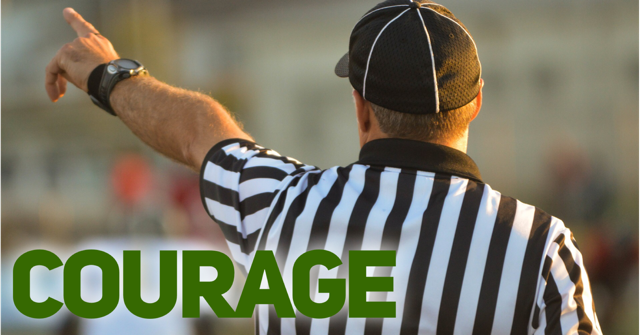|
Referees have a tough job to do regardless of the their experience, and they have to make some tough decisions in uncomfortable situations. Nobody seems to love you in those awkward moments and everybody is watching how you control the game.
I saw a really impressive example of good officiating yesterday under just these circumstances. In a game that was being played 0-0 well into the second half, a goalie makes a save right on the line. It's whistled a goal and both teams are a little confused. They don't say much except a few soft, "it wasn't a goal" remarks to each other. The referee was ~30 yards away and made a judgement call. The goalie looked bewildered and rolled the ball to midfield. The defending coach asked if this was a goal and the players on both teams quietly said "no". To the referee's credit, he walked to the goalie and asked her if it was a goal. She said, "no". He turned to the coaches and then to the parents to explain that he couldn't fully see the line and believes the goalie and the players. No goal. As the scoring coach, you can imagine there are some mixed feelings here. Do you petition for the goal or go with what looks to be the right decision. To the coaches' credit, they moved on with the game. The players, coaches, and parents saw a referee stand on an island essentially and correct a call with more information. I applaud the referee and admire his courage. We all learned a valuable lesson yesterday in judgement and fair play. We've all been coached in winning and losing situations. Sometimes we hate these people based on their behavior. Sometimes we love them too based on their behavior. Coaching has changed for the better, but it isn't perfect yet. It never will be because we all learn differently and from various places. We can be better in the same way we expect our players to continue to improve. I really love Malcolm's approach and he'd be a coach I'd love as a player. He highlights the four "L" words coaches should never use. If you see it, talk to the coach privately. If you're doing it, watch the video again and find a new approach. Our goal is to provide an avenue for kids to enjoy the game. Lousy coaches are lone of the reasons 70% kids stop playing sports by the age of 13. Let's be the reason they continue to enjoy the game and learn. |
Scott Moroney"As a coach, board member and new SYSA VP, I've likely seen and heard a lot of what you may be wondering how to manage as a parent or player. Great kids with supportive parents make it all a "once in a lifetime" experience. Archives
October 2019
Categories |

 RSS Feed
RSS Feed